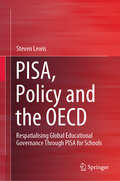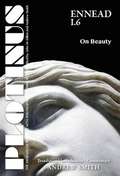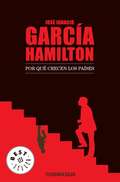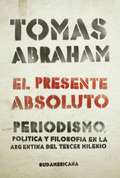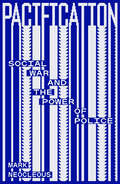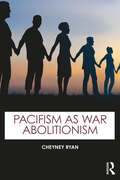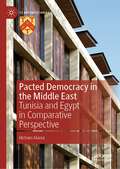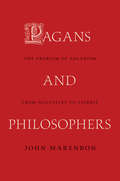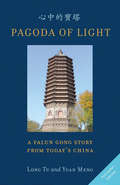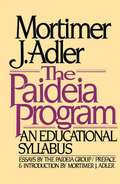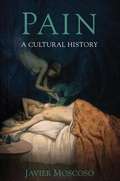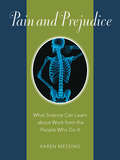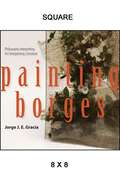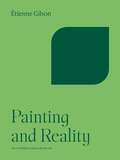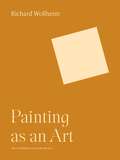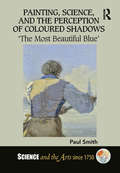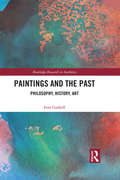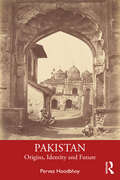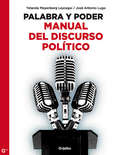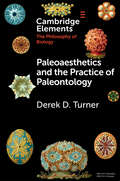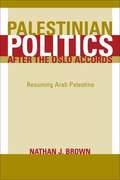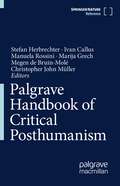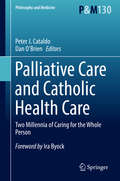- Table View
- List View
PICTURING QUANTUM PROCESSES: A First Course in Quantum Theory and Diagrammatic Reasoning
by Bob Coecke Aleks KissingerThe unique features of the quantum world are explained in this book through the language of diagrams, setting out an innovative visual method for presenting complex theories. Requiring only basic mathematical literacy, this book employs a unique formalism that builds an intuitive understanding of quantum features while eliminating the need for complex calculations. This entirely diagrammatic presentation of quantum theory represents the culmination of ten years of research, uniting classical techniques in linear algebra and Hilbert spaces with cutting-edge developments in quantum computation and foundations. Written in an entertaining and user-friendly style and including more than one hundred exercises, this book is an ideal first course in quantum theory, foundations, and computation for students from undergraduate to PhD level, as well as an opportunity for researchers from a broad range of fields, from physics to biology, linguistics, and cognitive science, to discover a new set of tools for studying processes and interaction.
PISA, Policy and the OECD: Respatialising Global Educational Governance Through PISA for Schools
by Steven LewisThis book explores new modes, spaces and relations of the Organisation for Economic Cooperation and Development (OECD)'s global educational governance associated with the PISA for Schools test. Adopting a theoretically-rich policy sociology approach, with an emphasis on topological understandings of spatiality and power, the book examines the entire PISA for Schools policy cycle, from its initial development, to its administration and promotion in the U.S., and its local enactment by schools and teachers. It demonstrates how PISA for Schools helps to steer how schooling is locally understood and practised through separate and yet overlapping techniques: governing by (1) heterarchy, (2) respatialisation and (3) 'best practice'.The book reveals the specific effects of PISA for Schools as an exemplar of how global educational governance is increasingly enfolded within contemporary schooling, as well as discussing how we might practise a policy sociology in which the local is acknowledged as a relevant space of concern.
PLOTINUS Ennead I.6: Translation with an Introduction and Commentary
by Andrew SmithEnnead I.6 is probably the best known and most influential treatise of Plotinus, especially for Renaissance artists and thinkers. Although the title may suggest a work on aesthetics and thus of limited focus, this is far from the case. For it quickly becomes apparent that Plotinus’ main interest is in transcendent beauty, which he identifies with the Good, the goal of all philosophical endeavor in the Platonist’s search to assimilate himself with the divine. <p><p> The treatise is at once a philosophical search for the nature of the divine and at the same time an encouragement to the individual to aspire to this goal by taking his start from the beauty which is experienced in this world; for it is an image of transcendent beauty. This upward movement of the treatise reflects throughout the speech of Socrates in Plato’s Symposium in which he recounts the exhortation of the priestess Diotima to ascend from earthly to transcendent beauty, which for Plotinus is identified with the divine.
POR QUE CRECEN LOS PAISES (EBOOK)
by Jose Garcia HamiltonPor qué crecen los países pretende responder a una pregunta que en todo el mundo se formula cotidianamente en los ámbitos académicos y de la gente común: por qué algunas naciones "funcionan" y otras no. Describiendo con agilidad la evolución histórica mediante la cual algunos pueblos han podido elaborar sociedades democráticas y prósperas, José Ignacio García Hamilton nos ilustra sobre libertad y despotismo, ley e instituciones, propiedad privada y socialismo, y desarrolla ideas que son complementarias de las tratadas en El autoritarismo hispanoamericano y la improductividad, el libro que lo consagrara como un autor argentino muy leído y respetado en el mundo hispanohablante y le valiera invitaciones de las Universidades de Cambridge (Inglaterra), Harvard, Georgetown, Wisconsin y varias otras de Estados Unidos. Con observaciones válidas para todas las repúblicas de la América Española, con agudas comparaciones entre el mundo anglosajón, latino, alemán y ruso, con elevado nivel académico pero lenguaje llano, Por qué crecen los países presenta a un García Hamilton tan lúcido, polémico y contundente como en cada una de sus obras.
PRESENTE ABSOLUTO, EL (EBOOK)
by Tomas AbrahamLa actualidad le plantea al filósofo un problema: la relación entre tiempo y pensamiento. El presente es una de las cuestiones que requieren toda nuestra imaginación y saber. La actualidad argentina requiere la tarea intelectual de un sismólogo. Agitación y estancamiento imponen un ritmo fisurado. Tomás Abraham inventa en este libro un programa para capturar el presente en toda su tremenda dimensión (#absoluto#) y lo ilustra con una serie de episodios que caracterizan su aspecto decisivo e inmediato. Le agrega un Mapa Conceptual de la política argentina compuesto por una serie de palabras sorprendentes jamás invitadas al discurso tradicional del análisis político. El presente absoluto puede leerse también como una increíble novela de intriga, con personajes de la política y la historia, con el filósofo en el papel de investigador y un asesino serial siempre en fuga: el tiempo mismo.
Pacification: Social War and the Power of Police
by Mark NeocleousThis provocative book offers the first sustained critique of the theory and practice of pacificationIn his new book, critical theorist Mark Neocleous engages in a sustained critique of the theory and practice of pacification. Combining philosophical analysis with historical detail, Neocleous analyses the development of pacification as a key concept through which capitalist modernity has been organized, offering readers the first book that treats pacification as an important concept in the history of state power and capitalism.Neocleous&’s approach is fourfold, examining pacification as social warfare carried out through the ideology of peace; as a form of social police carried out through mechanisms of security; as law and order exercised through the permanent wars of class society; and as the myriad practices of power designed to counter insurgency.Making use of official documents of state, the writings of counterinsurgency thinkers and the ideas perpetuated by practitioners of counterrevolution, the book unravels the complex ways through which pacification generates new forms of social war and new modes of policing that reproduce capitalist order and fabricate obedient subjects.Through expansive accounts of war and police, and engaging with a range of topics from debt to death, from stasis to civil war, and from the police kettle to the politics of fear, the book offers a provocative analysis of the ways in which state and capital combine to build a pacified social order.
Pacifism as War Abolitionism
by Cheyney RyanResponding to the unprecedented violence of our times, and the corresponding interest in nonviolent solutions, this book takes up the heart of pacifism: its critique of what pacifists have termed the war system.Pacifism as War Abolitionism provides an account of the war system that draws on contemporary sociology, history, and political philosophy. The core of its critique of that system is that war begets war, and hence war will not be ended—or even constrained—by finding more principled ways to fight war, as many imagine. War can only be ended by ending the war system, which can only be done nonviolently. This has been the message of pacifism's great voices like Gandhi, Dr. Martin Luther King, Jr., and Dorothy Day. It is the principal message of this book.Key Features Draws extensively on the sociological and historical research on war to expand the usual philosophical discussion beyond hypothetical accounts Expands the dialogues on the ethics of war beyond just war theory to its principal alternative: pacifism Engages discussion of empire and imperialism in relation to the logic and development of the war system Presents pacifism’s response to the reality of war today, including the idea of "never-ending war"
Pacted Democracy in the Middle East: Tunisia and Egypt in Comparative Perspective (St Antony's Series)
by Hicham AlaouiThis book provides a new theory for how democracy can materialize in the Middle East, and the broader Muslim world. It shows that one pathway to democratization lays not in resolving important, but often irreconcilable, debates about the role of religion in politics. Rather, it requires that Islamists and their secular opponents focus on the concerns of pragmatic survival—that is, compromise through pacting, rather than battling through difficult philosophical issues about faith. This is the only book-length treatment of this topic, and one that aims to redefine the boundaries of an urgent problem that continues to haunt struggles for democracy in the aftermath of the Arab Spring.
Pagans and Philosophers
by John MarenbonFrom the turn of the fifth century to the beginning of the eighteenth, Christian writers were fascinated and troubled by the "Problem of Paganism," which this book identifies and examines for the first time. How could the wisdom and virtue of the great thinkers of antiquity be reconciled with the fact that they were pagans and, many thought, damned? Related questions were raised by encounters with contemporary pagans in northern Europe, Mongolia, and, later, America and China. Pagans and Philosophers explores how writers--philosophers and theologians, but also poets such as Dante, Chaucer, and Langland, and travelers such as Las Casas and Ricci--tackled the Problem of Paganism. Augustine and Boethius set its terms, while Peter Abelard and John of Salisbury were important early advocates of pagan wisdom and virtue. University theologians such as Aquinas, Scotus, Ockham, and Bradwardine, and later thinkers such as Ficino, Valla, More, Bayle, and Leibniz, explored the difficulty in depth. Meanwhile, Albert the Great inspired Boethius of Dacia and others to create a relativist conception of scientific knowledge that allowed Christian teachers to remain faithful Aristotelians. At the same time, early anthropologists such as John of Piano Carpini, John Mandeville, and Montaigne developed other sorts of relativism in response to the issue. A sweeping and original account of an important but neglected chapter in Western intellectual history, Pagans and Philosophers provides a new perspective on nothing less than the entire period between the classical and the modern world.
Pagoda of Light: A Falun Gong Story from Today's China
by Yuan Meng Long TuThis true story of the Bai Family in China traces how their devotion to truth placed them on a collision course with the Communist Party. When they became practitioners of Falun Gong, it paved the way for a painful and torturous, yet enlightening, path in life, especially for the two brilliant brothers Xiaojun and Shaohua. After the Chinese Communist regime began its systematic repression of Falun Gong practitioners in 1999, Bai Xiaojun was tortured to death in one of the laogai or "re-education through labour" camps. His brother Bai Shaohua also disappeared in another such prison for three years. Through blood and sweat, Shaohua made it alive out of prison but was once again abducted in early February, 2008. The details in this gripping account of how Falun Gong practitioners are being repressed reveal the larger pattern of life, and death, under a totalitarian regime. Authors Long Tu and Yuan Meng, now living in Canada, compiled this account through personal contact with members of the Bai Family. They also write from personal experience. Long Tu is a computer program designer and Yuan Meng an architect and urban designer. Yuan Meng was herself imprisoned for 16 months in a laogai camp before leaving China, where unusual "meals" caused her body to swell and her back bones were broken during the persecution. They now live in Toronto and wrote Pagoda of Light to honour their imprisoned friends, noting that "the experience of the Bai family is but one of thousands of examples."
Paideia Program: An Educational Syllabus
by Mortimer J. AdlerPaideia is a holistic approach to life-long learning with roots in ancient Greece.The Paideia Program is based on the belief that the human species is defined by its capacity and desire for learning. The program itself argues for a public education that is at once more rigorous and more accessible.
Pain
by Javier MoscosoPain almost always lacks justification, but it does have a story. The gestures of the virgin martyrs, the mockery that accompanied Don Quixote's misadventures, the concealed penitence that took place inside convents, the little comedies of sexual masochism, the early modern anatomical theatres, the grimaces of anesthetized patients, the conscious pains of nervous disorders or the unconscious pains of mental illness all meet one another in this book. Contrary to the claims of the philosopher Cioran, who asserted that it was impossible to hold a conversation with physical pain, each and every one of these pages advocates for such an encounter and promotes such dialogue. Halfway between history and philosophy, this book deals with the successive (though not progressive) forms in which the experience of pain materializes the artistic, juridical, or scientific modalities that have permitted the cultural understanding of human suffering from the Renaissance to the present day. Representation, sympathy, imitation, but also coherence, trust, or narrativity are but a few of the rhetorical and argumentative recourses that men and women have employed, and continue to use, in order to feel our pain but also in order to express it, and to imbue it with meaning and collective value. "
Pain and Prejudice: What Science Can Learn About Work From The People Who Do It
by Dr Karen MessingIn 1978, when workers at a nearby phosphate refinery learned that the ore they processed was contaminated with radioactive dust, Karen Messing, then a new professor of molecular genetics, was called in to help. Unsure of what to do with her discovery that exposure to the radiation was harming the workers and their families, Messing contacted senior colleagues but they wouldn’t help. Neither the refinery company nor the scientific community was interested in the scary results of her chromosome studies. Over the next decades Messing encountered many more cases of workers around the world—factory workers, cleaners, checkout clerks, bank tellers, food servers, nurses, teachers—suffering and in pain without any help from the very scientists and occupational health experts whose work was supposed to make their lives easier. Arguing that rules for scientific practice can make it hard to see what really makes workers sick, in Pain and Prejudice Messing tells the story of how she went from looking at test tubes to listening to workers.
Painting Borges: Philosophy Interpreting Art Interpreting Literature (SUNY series in Latin American and Iberian Thought and Culture)
by Jorge J. GraciaIn this groundbreaking book, Jorge J. E. Gracia explores the artistic interpretation of fiction from a philosophical perspective. Focusing on the work of Jorge Luis Borges, one of the most celebrated literary figures of Latin America, Gracia offers original interpretations of twelve of Borges's most famous stories about identity and memory, freedom and destiny, and faith and divinity. He also examines twenty-four artistic interpretations of these stories—two for each—by contemporary Argentinean and Cuban artists such as Carlos Estévez, León Ferrari, Mirta Kupferminc, Nicolás Menza, and Estela Pereda. This philosophical exploration of how artists have interpreted literature contributes to both aesthetics and hermeneutics, makes new inroads into the understanding of Borges's work, and introduces readers to two of the most vibrant artistic currents today. Color images of the artworks discussed are included.
Painting and Reality (The A. W. Mellon Lectures in the Fine Arts #4)
by Etienne GilsonA classic study of the art of painting and its relationship to reality In this book, Étienne Gilson puts forward a bold interpretation of the kind of reality depicted in paintings and its relation to the natural order. Drawing on insights from the writings of great painters—from Leonardo, Reynolds, and Constable to Mondrian and Klee—Gilson shows how painting is foreign to the order of language and knowledge. Painting, he argues, seeks to add new beings to nature, not to represent those that already exist. For this reason, we must distinguish it from another art, that of picturing, which seeks to produce images of actual or possible beings. Though pictures play an important part in human life, they do not belong in the art of painting. Through this distinction, Gilson sheds new light on the evolution of modern painting. A magisterial work of scholarship by an acclaimed historian of philosophy, Painting and Reality features paintings from both classical and modern schools, and includes extended selections from the writings of Reynolds, Delacroix, Gris, Gill, and Ozenfant.
Painting as an Art (The A. W. Mellon Lectures in the Fine Arts #33)
by Richard WollheimOne of the twentieth century’s most influential texts on philosophical aestheticsPainting as an Art is acclaimed philosopher Richard Wollheim’s encompassing vision of how to view art. Transcending the traditional boundaries of art history, Wollheim draws on his three great passions—philosophy, psychology, and art—to present an illuminating theory of the very experience of art. He shows how to unlock the meaning of a painting by retrieving—almost reenacting—the creative activity that produced it. In order to fully appreciate a work of art, Wollheim argues, critics must bring a much richer conception of human psychology than they have in the past. This classic book points the way to discovering what is most profound and subtle about paintings by major artists such as Titian, Bellini, and de Kooning.
Painting, Science, and the Perception of Coloured Shadows: ‘The Most Beautiful Blue’ (Science and the Arts since 1750)
by Paul SmithMany artists and scientists – including Buffon, Goethe, and Philipp Otto Runge – who observed the vividly coloured shadows that appear outdoors around dawn and dusk, or indoors when a candle burns under waning daylight, chose to describe their colours as ‘beautiful’. Paul Smith explains what makes these ephemeral effects worthy of such appreciation – or how depictions of coloured shadows have genuine aesthetic and epistemological significance. This multidisciplinary book synthesises methodologies drawn from art history (close pictorial analysis), psychology and neuroscience (theories of colour constancy), history of science (the changing paradigms used to explain coloured shadows), and philosophy (theories of perception and aesthetic value drawn from Wittgenstein and Merleau-Ponty). This title will be of interest to scholars in art history, art theory, and the history of science and technology.
Painting, Science, and the Perception of Coloured Shadows: ‘The Most Beautiful Blue’ (Science and the Arts since 1750)
by Paul SmithMany artists and scientists – including Buffon, Goethe, and Philipp Otto Runge – who observed the vividly coloured shadows that appear outdoors around dawn and dusk, or indoors when a candle burns under waning daylight, chose to describe their colours as ‘beautiful’. Paul Smith explains what makes these ephemeral effects worthy of such appreciation – or how depictions of coloured shadows have genuine aesthetic and epistemological significance. This multidisciplinary book synthesises methodologies drawn from art history (close pictorial analysis), psychology and neuroscience (theories of colour constancy), history of science (the changing paradigms used to explain coloured shadows), and philosophy (theories of perception and aesthetic value drawn from Wittgenstein and Merleau-Ponty). This title will be of interest to scholars in art history, art theory, and the history of science and technology.
Paintings and the Past: Philosophy, History, Art (Routledge Research in Aesthetics)
by Ivan GaskellThis book is an exploration of how art—specifically paintings in the European manner—can be mobilized to make knowledge claims about the past. No type of human-made tangible thing makes more complex and bewildering demands in this respect than paintings. Ivan Gaskell argues that the search for pictorial meaning in paintings yields limited results and should be replaced by attempts to define the point of such things, which is cumulative and ever subject to change. He shows that while it is not possible to define what art is—other than being an open kind—it is possible to define what a painting is, as a species of drawing, regardless of whether that painting is an artwork or not at any given time. The book demonstrates that things can be artworks on some occasions but not necessarily on others, though it is easier for a thing to acquire artwork status than to lose it. That is, the movement of a thing into and out of the artworld is not symmetrical. All such considerations are properly matters not of ontology—what is and what is not an artwork—but of use; that is, how a thing might or might not function as an artwork under any given circumstances. These considerations necessarily affect the approach to paintings that at any given time might be able to function as an artwork or might not be able to function as such. Only by taking these factors into account can anyone make viable knowledge about the past. This lively discussion ranges over innumerable examples of paintings, from Rembrandt to Rothko, as well as plenty of far less familiar material from contemporary Catholic devotional works to the Chinese avant garde. Its aim is to enhance philosophical acuity in respect of the analysis of paintings, and to increase their amenability to philosophically satisfying historical use. Paintings and the Past is a must-read for all advanced students and scholars concerned with philosophy of art, aesthetics, historical method, and art history.
Pakistan: Origins, Identity and Future
by Pervez HoodbhoyThis book is an accessible, comprehensive, and nuanced history of Pakistan. It reflects upon state and society in Pakistan and shows they have been shaped by historical forces and personae. Hoodbhoy expertly maps the journey of the region from many millennia ago to the circumstances and impulses that gave birth to the very first state in history founded upon religious identity. He documents colonial rule, the trauma of Partition, the nation’s wars with India, the formation of Bangladesh, and the emergence of Baloch nationalism. The book also examines longstanding complex themes and issues – such as religious fundamentalism, identity formation, democracy, and military rule – as well as their impact on the future of the state of Pakistan. Drawing on a range of sources and written by one of the foremost intellectuals of the region, this book will be indispensable for scholars, researchers, students of history, politics, and South Asian studies. It will be of great interest to the general reader interested in understanding Pakistan.
Palabra y poder:
by Yolanda Meyemberg LeyceguiEl discurso político tiene el objetivo fundamental de persuadir a un grupo social para que realice un acto determinado: emitir un voto, avalar una política específica, refrendar una iniciativa, etcétera. Por ello, un discurso eficaz requiere estar construido sobre una base retórica que garantice la implantación del mensaje en la mente del receptor; esto es, que lo convenza de sus argumentos el emisor. El discurso es también un instrumento de legitimación política, fundamental para conocer las posiciones ideológicas de los líderes sociales, de la propia sociedad y de los medios de comunicación. Su vigencia a lo largo de la historia como medio persuasivo tiene que ver con la eficacia con la que logra sus fines: desde la antigua Grecia hasta la actualidad los escritores de discursos han recurrido a diversa técnicas comunicativas tanto para organizarlos como para pronunciarlos ante un ágora determinada. Palabra y poder: Manual del discurso político es una herramienta que proporciona reglas y conceptos prácticos para elaborar un discurso claro, ordenado y eficaz. La obra está dirigida a quienes desempeñan la difícil tarea de redactar los mensajes que de manera cotidiana pronuncian los políticos en la arena pública. Los autores, Yolanda Meyenberg y José Antonio Lugo, han dedicado parte de su vida profesional a la construcción de discursos como piezas retóricas cuya finalidad es informar sobre los actos de gobierno, afianzar la imagen de la autoridad y legitimar sus acciones. Así, al finalizar la lectura de este libro, el lector será capaz de elaborar un discurso de calidad, no sólo en cuanto a su aspecto literario, sino también en relación con la solidez de sus argumentos retóricos.
Paleoaesthetics and the Practice of Paleontology (Elements in the Philosophy of Biology)
by Derek D. TurnerThe practice of paleontology has an aesthetic as well as an epistemic dimension. Paleontology has distinctively aesthetic aims, such as cultivating sense of place and developing a better aesthetic appreciation of fossils. Scientific cognitivists in environmental aesthetics argue that scientific knowledge deepens and enhances our appreciation of nature. Drawing on that tradition, this Element argues that knowledge of something's history makes a difference to how we engage with it aesthetically. This means that investigation of the deep past can contribute to aesthetic aims. Aesthetic engagement with fossils and landscapes is also crucial to explaining paleontology's epistemic successes.
Palestinian Politics after the Oslo Accords: Resuming Arab Palestine
by Nathan J. BrownThis timely and critically important work does what hostilities in the Middle East have made nearly impossible: it offers a measured, internal perspective on Palestinian politics, viewing emerging political patterns from the Palestinian point of view rather than through the prism of the Arab-Israeli conflict.
Palgrave Handbook of Critical Posthumanism
by Manuela Rossini Stefan Herbrechter Ivan Callus Marija Grech Megen de Bruin-Molé Christopher John MüllerPalgrave Handbook of Critical Posthumanism is a major reference work on the paradigm emerging from the challenges to humanism, humanity, and the human posed by the erosion of the traditional demarcations between the human and nonhuman. This handbook surveys and speculates on the ways in which the posthumanist paradigm emerged, transformed, and might further develop across the humanities. With its focus on the posthuman as a figure, on posthumanism as a social discourse, and on posthumanisation as an on-going historical and ontological process, the volume highlights the relationship between the humanities and sciences. The essays engage with posthumanism in connection with subfields like the environmental humanities, health humanities, animal studies, and disability studies. The book also traces the historical representations and understanding of posthumanism across time. Additionally, the contributions address genre and forms such as autobiography, games, art, film, museums, and topics such as climate change, speciesism, anthropocentrism, and biopolitics to name a few. This handbook considers posthumanism’s impact across disciplines and areas of study.
Palliative Care and Catholic Health Care: Two Millennia of Caring for the Whole Person (Philosophy and Medicine #130)
by Peter J. Cataldo Dan O’BrienThis book offers a comprehensive overview of the compatibility of palliative care with the vision of human dignity in the Catholic moral and theological traditions. The unique value of this book is that it presents expert analysis of the major domains of palliative care and how they are compatible with, and enhanced by, the holistic vision of the human person in Catholic health care. This volume will serve as a critically important ethical and theological resource on palliative care, including care at the end of life, for bioethicists, theologians, palliative care specialists, other health care professionals, Catholic health care sponsors, health care administrators and executives, clergy, and students. Patients receiving palliative care and their families will also find this book to be a clarifying and reassuring resource.

